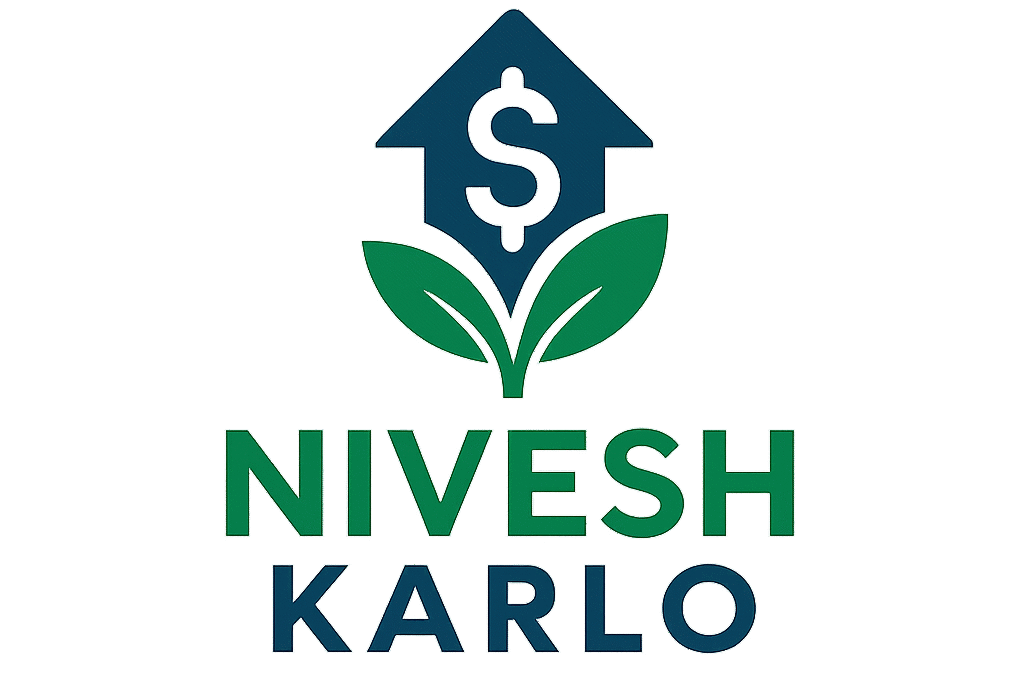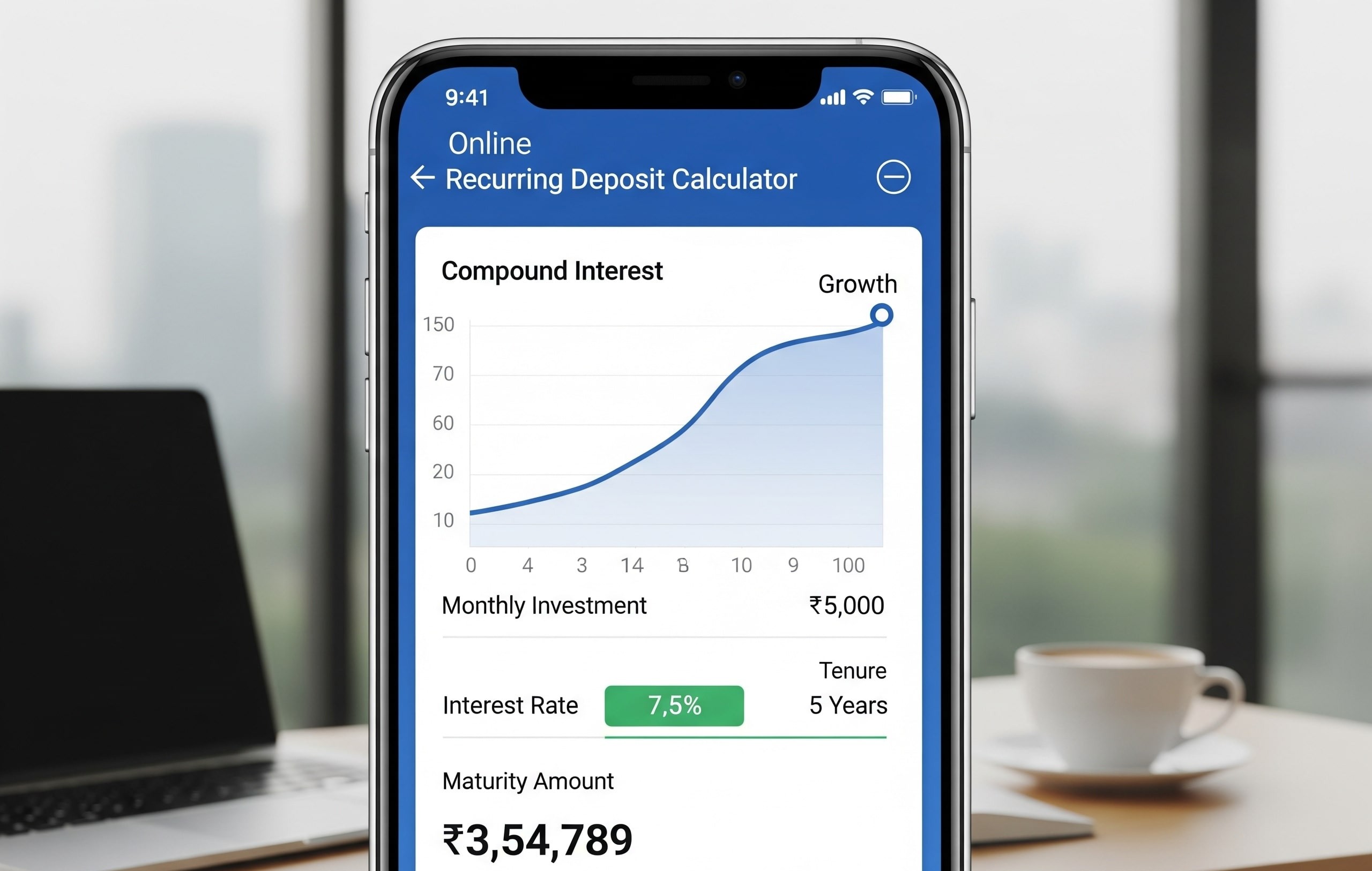Tax Saving Schemes
People are constantly looking for tax saving schemes to reduce their income tax. Nobody likes to pass up opportunities to reduce their tax liability. Different people favour various approaches for tax saving schemes. They occasionally just use the techniques they are familiar with, missing out on opportunities to save money on taxes. This post is intended for those who wish to learn more about how to reduce the amount of money they pay in income taxes by knowing more tax saving schemes. If you’re wondering how to reduce your income tax in India, keep reading to learn 20 best tax saving schemes.
What is income tax?
You provide the government a share of your income in the form of income tax. An annual collection of this tax is made. The government uses this money for administrative purposes.
Indian income tax saving option: There are two strategies to reduce your tax bill in India:
● By Claiming Expenses: In order to avoid paying income tax, you must claim the expenses you incurred.
● By Investing in Tax Saving option: The government promotes tax savings among its citizens by encouraging them to put their money into the tax-saving investments listed under section 80C of the Income Tax Act. By doing so, you may make sure you have some kind of investment and stop worrying about having to spend a lot of money on paying taxes.
20 Legal tax saving schemes in India:
Below are some strategies for reducing your 2019–20 and 2020–21 taxes. They are divided into sections under three headings for people who are seeking careers in business and those who are salaried employees and seeking for tax saving schemes. Read the following points if you’re interested in learning more about tax savings options in India outside 80C and income tax. Keep in mind that these points may have minute variations based on yearly updates.
Income tax saving Schemes through a Mortgage:
1. Tax Deduction If You Take Out A Mortgage:
If you organise your house loan wisely in compliance with section 80C, you can save tax. Section 80C limits the principal amount to Rs. 1.5 lakhs, and Section 24 limits the interest amount to Rs. 2 lakhs.
Sections 80C, 80CCC, 80CCD, 80D, 80DD, 80DDB, 80CCG, and 80G offer tax savings opportunities.
For various areas, the following is a list of tax saving options solutions.
2. Income from Savings Account Interest: Interest from savings accounts is generally exempt from taxation up to a maximum of Rs. 10,000. This sum represents the total of all savings accounts. For senior folks, this cap is increased to Rs. 50000.
3. Income from Interest on NRE Accounts: Indians who are not residents of India have NRE accounts. They receive interest on both the accumulating and fixed deposit amounts. Such an amount is not taxable because of how kind the Indian government is to NRIs. The amount of interest is referred to as tax-free income.
4. Money Received from Life Insurance Policy: You can receive money from a life insurance policy either when it matures or when you receive the claim amount. If the premium does not exceed 20% of the insured amount, the amount received is tax-exempt. Prior to April 1, 2012, these policies were issued. For policies created after April 1, 2012, the percentage falls to 15.
5. Scholarship for Education: Section 10 exempts money of this kind from taxes (16). Since every dollar earned through a private or public scholarship is tax-free, there are no restrictions in this situation. This is one of the best tax saving option.
6. Amount Received From Sold Shares or Sold Equity Mutual Funds: A 10% tax is due if the long-term capital gain exceeds Rs. 1 lakh.
7. Income received as dividends on shares of stock or equity mutual funds is exempt from taxes. This is widely used income tax saving option nowadays.
8. Wedding Gift: A wedding is a joyous occasion for the whole family, particularly for the person getting married. In India, the bride and groom get a plethora of presents at this enormous celebration. Such gifts are not taxable under Section 56(2). Gifts received at marriage, whether in the form of cash, a check, or a gift, are not subject to tax. Such gifts may come from your friends or family. This Is highly used tax saving schemes nowadays.
9. Income from Agriculture: All agricultural land income, as described in section 10(1), is exempt from taxation. Such income can be derived through land rent, land revenue, the price of agricultural products, and the price of a farm structure.
10. HUF and Extra Income: If you have a secondary income in addition to your primary salary, you can save money on taxes on that additional income by using this tax saving schemes. A secondary income might include money made from freelancing, for instance. You must set up a different HUF account for the additional revenue. Then, you can invest that money in accordance with Section 80C to receive tax benefits on it.
11. The sum obtained through inheritance in the form of a will is not subject to taxation in India. As a result, you won’t be taxed in India on the money you get thanks to a will. This is highly used tax saving schemes.
12. Provisions Under Section 80C: Section 80C of the Income Tax Act allows for investments of up to Rs. 1,50,000, which the Indian government offers as a means of promoting savings. As a result, investing in tax saving schemes under 80C allows you to both reduce your income tax liability and make investments for the future. Here is a summary of common tax saving investment choices that qualify for section 80C tax saving schemes
● Government Provident Fund
● The National Pension Plan
● Payment of premium for a life insurance policy
● Certificate of National Savings
● Equities-Linked Savings Program
● The principal of a mortgage
● Five-year term for a fixed deposit
● Account of Sukanya Samariddhi
● school costs for kids
Here is a table that shows which investments will yield you what returns during each lock-in term and in which tax saving schemes you can invest.
| Investment | Returns | Lock-in Period |
| 5-Year Bank Fixed Deposit | 6% to 7% | 5 years |
| Public Provident Fund (PPF) | 7% to 8% | 15 years |
| National Savings Certificate | 7% to 8% | 5 years |
| National Pension System (NPS) | 12% to 14% | Till retirement |
| ELSS Funds | 15% to 18% | 3 years |
13. Extra National Pension Scheme Contribution: Normally, contributions to the National Pension Scheme are covered under Section 80C, which has a cap of Rs. 150,000. To invest an additional Rs. 50,000 tax-free in the National Pension Scheme, however, is an option. This serves as one of the best income tax saving options.
14. Money from Provident Funds: Interest on Provident Funds is not taxed. Before you withdraw money from your Provident Fund, give yourself five years.
15. Loan for Educational Purposes: Section 80E of the Income Tax Act governs this. The amount of interest paid on a student loan is not taxable. There is no established cap for this category.
16. Health Insurance Premium: Section 80D is a section specifically for tax deductions related to health insurance. The cost of health insurance premiums, to a certain extent, is not tax deductible. On an annual basis, this sum fluctuates. You might save more tax by paying the premium for senior health insurance.
17. Expenses for caring for a dependent who is disabled: These deductions are included in Section 80DD. For those with disabilities ranging from 40 to 80%, fixed deductions of Rs. 75,000 are given, while Rs. 125,000 are given for disabilities above 80%. Such costs ought to be related to medical care, therapy, or education. To be eligible for this deduction, you must present a certificate of disability.
18. Expenses for Treating Particular Diseases: Section 80DDB includes this deduction. For expenses incurred to treat specific illnesses like dementia, cancer, AIDS, etc., tax benefits are available. Tax deductions of up to Rs. 40,000 are available for such illnesses. If the costs are for a senior citizen who is dependent, the sum rises to Rs. 1 lakh.
19. Money Spent on Donation to Charity: Giving money to recognised charities can help you avoid paying taxes on that money. Section 80G governs this deduction. You must have a current certificate from the charitable organisation in order to receive the benefit.
20. Tax Deductions for Political Party Donations: There is no maximum amount that can be deducted from taxes for donations made to political parties. These deductions fall under Section 80GGC. Such a donation would be fully deductible.
Tax-saving option for business people:
Here is a list of ways a business owner might reduce taxes through tax saving schemes:-
- When a partnership firm makes money and the owners elect to divide the profit among themselves, no tax will be withheld from the partners. This is one of the best tax-saving schemes.
2. Travel-Related Expenses: This is another tax saving schemes in order to reduce their tax liability, business owners can claim their travel-related expenses as business expenses.
3. Expenses Made for Food: Business owners can claim expenses made for food as business expenses to reduce their tax liability.
Income Tax saving option for those who are salaried:

Here is a list of salary earners’ income tax saving option through some tax saving schemes :-
1. Leave Travel Allowance: Employees may use this feature to pay for parent, child, and spouse travel expenses. Only if they are reliant on the salaried individual are siblings protected. This can be your one of the best tax saving schemes.
2. When HRA is Included in Salary: To be eligible for this benefit, you must live in a rented home and have the necessary receipts.
3. When HRA is not included in the salary, there are a number of ways to take advantage of the tax benefit. 1) Deducting rent from 10% of income, 2) charging a flat monthly charge of Rs. 5000, and 3) taking 1/4 of total income. Section 80GG contains the deductions mentioned above.
4. Amount of Gratuity Received: Up to a certain amount, gratuities are tax-free. A tax-free gratuity cannot exceed Rs. 20 lakhs.
5. Food coupons, or meal coupons as they are more frequently called, are not subject to taxation up to a certain amount. They are exempt from taxation up to Rs. 2600.
6. Standard Deduction: A Rs. 40.000 standard deduction is available. The maximum amount is this. This is a highly recommend tax saving schemes for salary earners.
7. Company Leased Car: Using a company leased car can help you save money on taxes.
8. Telephone and internet costs can be used to reduce taxable income.
9. Amount Received Under the Voluntary Retirement Plan: Many people opt for voluntary retirement and receive a pay-out. As long as it doesn’t exceed Rs. 5 lakhs, the money received under the Voluntary Retirement Scheme is not taxed. So therefore there is no tax saving schemes for this.
Best Tax Savings investments Under Section 80C
Despite the fact that there are numerous tax saving investment plans on the market. People frequently struggle to determine which plan suits them the best. We’ve developed some of the top tax saving investments under Section 80C of the Income Tax Act, 1961 in order to help you choose the ideal investment plan for you based on your risk tolerance and preferences.
● Mutual Fund for ELSS (Equity-Linked Savings Scheme)
The equity-linked saving scheme (ELSS) is a type of diversified mutual fund that has two unique characteristics: first, tax saving investments made in ELSS are subject to a 3-year lock-in period and are eligible for tax deduction up to a maximum of Rs. 1.5 lakh under section 80C of the Income Tax Act.
The interest rate on ELSS funds ranges from 5% to 18%. An equity-linked saving plan, however, offers variable rewards that are based on the fund’s market performance rather than being fixed. According to their needs or preferences, investors in ELSS funds may choose a dividend or growth option. The dividends in an equity scheme are 10% taxable as of April 1, 2018, nonetheless. Investors who chose the growth option over the dividend option will therefore probably see returns that are tax-effective.
● The National Pension Scheme (NPS), one of the greatest tax saving investment plans for reducing taxes, assists in offering tax exemptions under the three areas listed below.
Section 80C of the IT Act allows for the tax exemption of contributions up to a maximum of Rs. 1.5 lakh. One may receive an extra deduction of up to Rs. 50,000 under Section 80CCD (1b). The amount is not taxed if the employer contributes 10% of the employee’s base salary to the National Pension Scheme.The three tax advantages have made NPS more popular among investors. Only 40% of the fund is tax exempt at maturity under the national pension plan, though. Additionally, with NPS, investing 40% of the corpus into an annuity plan is required in order to get a monthly income. After retirement, the investors get an annuity, which is regarded as income and subject to tax.
● Plan of Unit-Linked Insurance (ULIP)
ULIPs are another tax saving investment that not only exempts investors from paying taxes but also enables them to earn substantial returns on their capital over an extended period of time. The latest generation ULIPs that the insurance firms have introduced come with no premium allocation fees and no administration fees, which improves returns for investors.
Additionally, by combining the advantages of insurance and investing, one can benefit from the exemption from income taxation provided by section 80C of the Income Tax Act for the premium paid for the policy. Also exempt from taxation under Section 10(10D) of the IT Act are investment returns. ULIP plans give investors convenience of investment and have a 5-year lock-in term.
● Government Provident Fund (PPF)
PPF is a well-known long-term tax-saving investment plan that includes the characteristic of tax-saving investments to aid participants in building a financial cushion for their post-retirement years. Every three months, the interest rate on the PPF balance is reset.
The Public Provident Fund enjoys an EEE status, which is exempt, exempt, and exempt, in cases where income tax is a possibility. This indicates that all contributions made to the PPF account, as well as the interest and maturity revenues, are tax-free. As a result, it is regarded as one of the finest investments for tax savings. The risk factor is constant despite the fluctuating PPF interest rate.
A further five years might be added to the public provident fund’s 15-year maturity period. Under section 80C of the Income Tax Act, a taxpayer may seek a tax exemption of up to Rs1.5 lakh. The Public Provident Fund, a government-backed savings programme, is the most reliable and perfect financial tool because it provides a long-term return on investment.
● Elderly Savings Program
The Senior Citizen Savings Scheme is a tax saving investment programme backed by the government that is created expressly to give senior citizens financial security. A person must be at least 60 years old to invest in SCSS. A one-time deposit of at least Rs. 1,000 and a maximum investment of Rs. 15 lakhs (in the case of joint holding) and Rs. 9 lakhs are required to participate in this scheme (in case of single holding). As a result, SCSS investment costs are relatively variable.
The Senior Citizen Savings Scheme has a 5-year lock-in term. In SCSS, interest is paid every three months. According to section 80 C of the Income Tax Act, the deduction for TDS under this tax-saving investment is up to Rs. 1.5 lakhs. The senior citizen saving plan offers the highest interest rate of 7.4% annually compared to other tax-saving investments and guarantees a return to investors. In addition, the plan permits early withdrawal in the event of any financial emergencies.
● The Bank Fixed Deposit Program
Security deposits, like other guaranteed return investment choices, are what bank FDs are. The sole distinction is that bank FDs have an investment term of five years. The bank FD provides tax-free income as an investing strategy that saves on taxes.
For those who choose low risk and wish to save money over the long term, this plan is best suited.
Individuals who invest in bank FDs receive a guaranteed return on their money, as well as investment security because their money is locked in for the duration of the term.
One may claim up to Rs. 1.5 lakh in tax-saving investment FDs under section 80C of the Income Tax Act. The interest rate for the fixed deposit plan is determined by the banks and is subject to vary every quarter or fiscal year. Compared to a savings account, a bank fixed deposit offers a better potential for earning income and only permits one lump sum payment. The Bank FD does not permit early withdrawal because its term is only five years.
● Insurance
Market-available life insurance is seen as an investment strategy that reduces taxes. It is not suggested for people to purchase a life insurance policy only for tax purposes, as the primary goal of these insurance plans is to offer insurance coverage.
One can gain from the Income Tax Act’s sections 80C and 10(10D) regarding the taxability of income in addition to the benefit of insurance coverage. The life insurance policy’s premium payment and maturity payout are both tax-exempt. The policy’s returns, including endowment and money-back, are also tax-free. Up to Rs. 1.5 lakh in tax exemption can be requested under a life insurance policy.
How Should Tax-Saving Investments Be Planned?
Despite this, the majority of taxpayers put off tax planning until the fourth quarter, which leads to difficult choices. The beginning of the fiscal year is the ideal time to prepare the tax saving investments. The planning process for tax saving schemes at the beginning of the fiscal year will allow the investments to grow over time and will enable the investor to achieve their long-term financial objectives. The tax payers can use these guidelines to plan their annual tax savings using available tax saving schemes and make informed choices when investing in tax saving schemes
● Look over any pre-existing tax saving schemes charges you may have, such as insurance premiums, EPF contributions, child-related expenses, home loan repayment, etc.
● You would not need to invest the full amount if your tax saving schemes expenses are less than the maximum limit of Rs. 1.5 lakh.
● Select tax saving investments like PPF, ELSS funds, bank FDs, and NPS based on the goal and risk profile.
Conclusion
It is crucial to take safety, returns, and liquidity into account when choosing the best tax saving schemes. Additionally, it’s critical to have a thorough awareness of the tax implications of the returns. The potential to accumulate wealth over the long term is limited if investment returns are taxed. This article explain everything about the tax saving schemes. We hope this article will help you to take the right decision to choose which income tax saving options is better for you!
Frequently asked questions about tax saving schemes and tax saving options are :-
1- What are the various income classification categories?
Answer– The five categories of income include salary income, revenue from capital gains, profit or gains from a business or profession, income from real estate, and other sources of income.
2- If my annual salary is less than Rs. 250000, do I need to worry about saving money on income tax? Is there any tax saving schemes?
Answer– The tax slabs may alter every year. Tax collection from individuals earning less than Rs. 250000 is not required under the tax bracket in effect as of February 2020. The individual should still file taxes, despite this. Even if the annual income is not taxable, one must file income tax forms because it is a healthy habit to have.
3- How do ULIPs work?
Answer– ULIPs, or unit-linked insurance plans, are a common abbreviation. They are insurance programmes connected to the stock market. Taxes can be avoided, and you get to see your money increase. This is one of the tax saving schemes.
4- Is there any post office-related tax saving schemes?
Answer– There is a post office-related tax saving schemes, it is true. Like a five-year fixed deposit, you can invest with a post office in a five-year time deposit. A post office time deposit offers better interest rates than a fixed deposit that can be used to reduce taxes.
More Articles: IPO Grey Market Premium, Latest IPO GMP
Which Bank Is Best For Demat Account
What Is a Good Credit Score in India
10 Top FinTech Companies In India 2022
Reach your financial Goals with financial management
Hello there, my name is Phulutu, and I am the Head Content Developer at Nivesh Karlo. I have 13 years of experience working in fintech companies. I have worked as a freelance writer. I love writing about personal finance, investments, mutual funds, and stocks. All the articles I write are based on thorough research and analysis. However, it is highly recommended to note that neither Nivesh Karlo nor I recommend any investment without proper research, and to read all the documents carefully.





